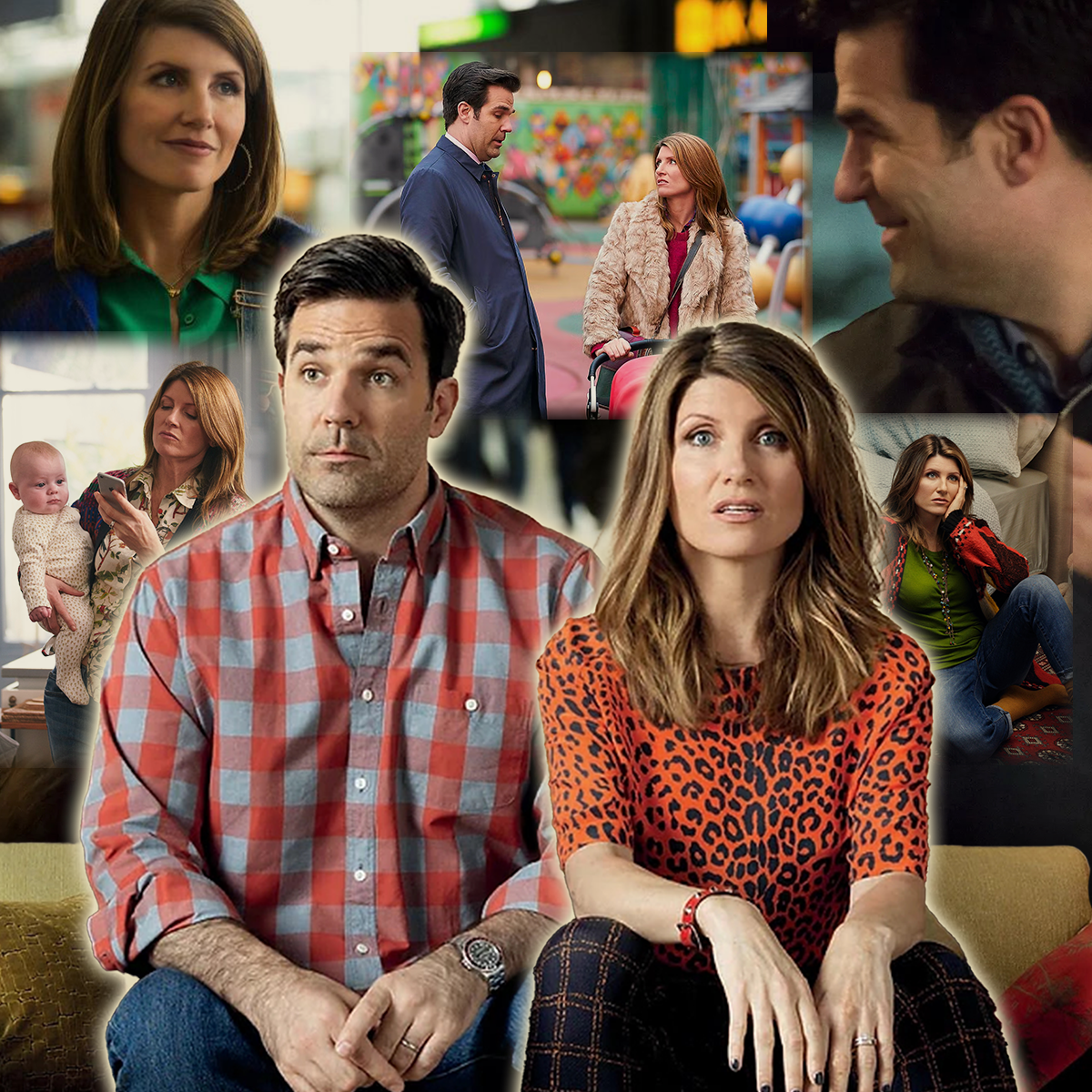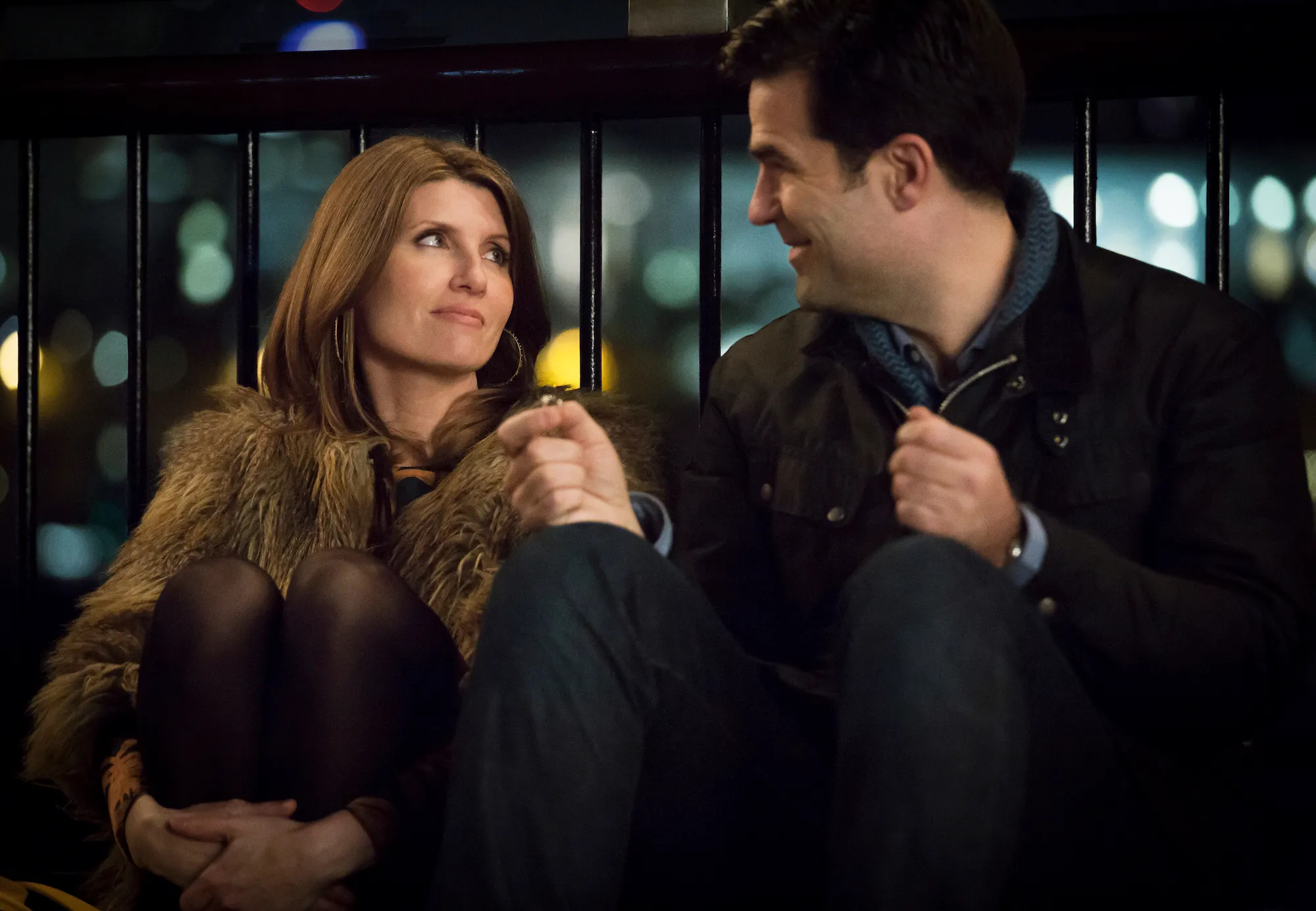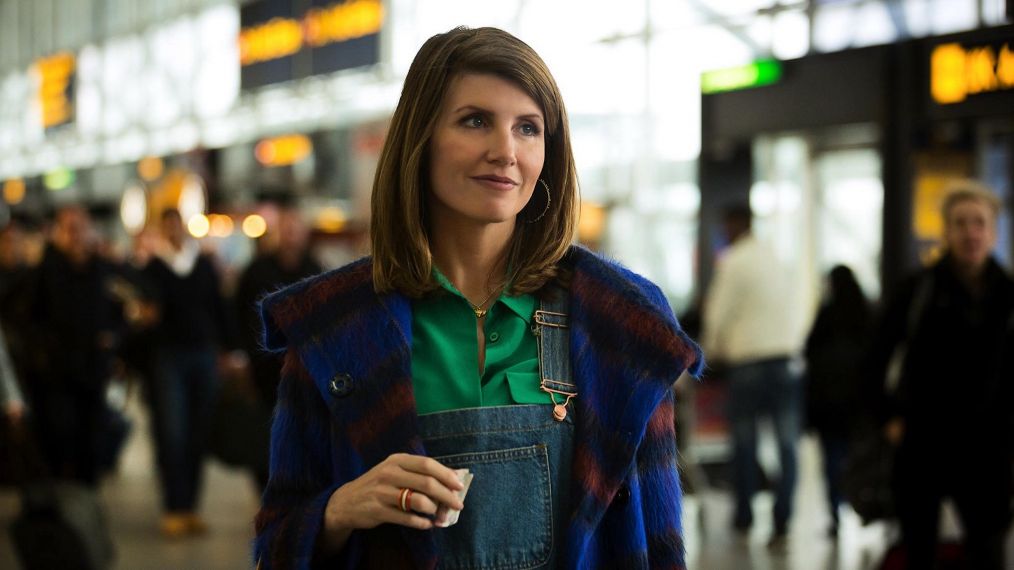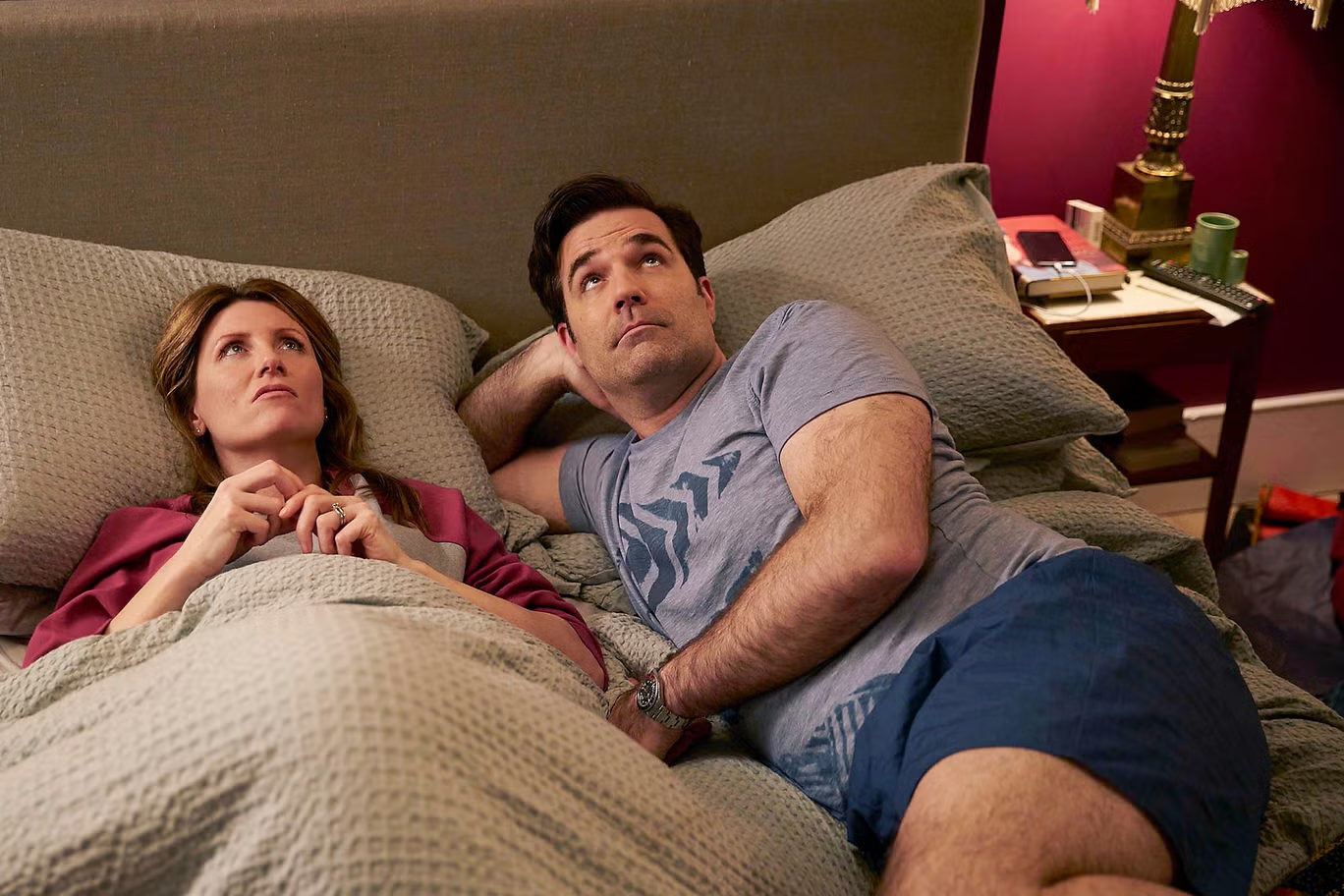
For decades, shows like Sex and the City, Girlfriends, Gilmore Girls, and Grey’s Anatomy have made being in your 30s look as fabulous and ambitious as ever. But your 40s? Forget about it, at least based on the few complex representations of women in their 40s on TV. However, when Catastrophe came along in 2015, the British sitcom started to change that—and made me eagerly anticipate turning 40.
Not enough people watched Catastrophe. Created by Sharon Horgan (now of Bad Sisters fame) and Rob Delaney, the unflinching sitcom tells the very unconventional love story of Sharon Morris, an Irish schoolteacher who’s “on the wrong side of 40,” and Rob Norris, an American ad exec traveling in London on business. The pair have a chance meeting in a bar and then spend Rob’s entire six-day trip hooking up before they inevitably part. A month later, Sharon realizes she’s pregnant, and Rob uproots his life to be with her and raise their child in the U.K. The creators’ own lives inspired the premise; Horgan conceived her first child when she and her now-husband had only dated for six months, and Delaney is now sober and an expat living in London.

Catastrophe was released on the U.K.’s Channel 4 on January 19, 2015, before making it stateside as an Amazon Original that June. I got around to watching it one month after graduating college when only the first two installments of its four-season run were released, and it remains a formative memory on how I think of aging. Each season has six episodes, all co-written by Horgan and Delaney. Season 1 covers Sharon’s pregnancy with their son Frankie; the season 2 premiere fast-forwards nearly three years to the couple welcoming their daughter, Muireann (a traditional Irish name only Sharon and her relatives can pronounce, in a running gag). Throughout its run, the dark comedy is unflinchingly honest about how brutal, hilarious, disgusting, beautiful, and hard it is to maintain the fictional Sharon and Rob’s life together every day.
Sharon’s age is an inextricable part of the series, and it comments on how age is linked with motherhood. It’s a large reason why she decides to see the pregnancy through in the first place. As she describes to her brother Fergal (Jonathan Forbes) in season 1, episode 2, “They’re a little bit harder to make when you’re old–older. I can’t just rip it out and plant another one up there when the time is right.” The subject of Sharon’s age mostly comes up within medical settings, mostly standout scenes where a perpetually-bored OB/GYN (played by Tobias Menzies) relays the latest update of Sharon’s high-risk gestation, as well as her own anxieties. While a lesser show may make a punchline out of Sharon being beyond her 30s, Horgan and Delaney never make her the butt of the joke; instead, they point at the absurdity of how medicine treats women having a child past age 35. Catastrophe was the first instance I’d heard of the term “geriatric pregnancy,” and the joke wasn’t a chance to laugh at Sharon, but a chance to point out how wild it is that such a term would exist. If anything, it’s even funnier because, by that scene in episode 4, no one would use that term for someone as young-at-heart as Sharon.

Before Catastrophe, I’d never seen a female character in her 40s to whom I instantly related. To be fair, I wasn’t an extremely well-rounded TV watcher at the time. I hadn’t yet watched classic TV comedies like Golden Girls or Murphy Brown or Maude that portrayed gutsy women over 40, and I didn’t connect to self-sacrificing sitcom moms as a fresh college grad entering adulthood. Sharon was the first woman I saw approaching middle age with whom I had anything in common. I saw my dark humor and tendency to respond to vulnerability and big feelings with sarcasm in her. She had also studied writing in college, and I loved her cozy bachelorette apartment and her artistic, denim-forward style. At times I found myself imagining what her life could’ve been like before she met Rob, the ways it could’ve intersected with the nebulous life I was taking my first steps into. Most of all, I loved that she was the first female character over 40 I saw as someone I could eventually become.
The 2015 Boxed In report found that only 19 percent of female TV characters were in their 40s across network, cable, and Netflix shows released in the 2014-15 season. 9 years later in 2024, 17 percent of female major TV characters were in their 40s, followed by 12 percent in their 50s, and 6 percent in their 60s. Hollywood has been making gains in depicting nuanced stories of women’s aging, but complex, excellently-written TV characters like Sharon are still rare. Without Sharons on TV, there aren’t depictions to dispel the stereotype that women’s lives stop at a certain age and that only those in their 20s and 30s deserve to be seen.
Horgan and Delaney never make Sharon the butt of the joke; instead, they point at the absurdity of how medicine treats women having a child past age 35.
Not only did I see myself in Sharon, but I also saw myself in her and Rob’s messy, loving, sometimes difficult partnership. Sharon and Rob are on my personal Mount Rushmore of the best TV couples of all time. Even while the show subverts rom-com kismet—when they learn each other’s last names are Morris and Norris, Sharon’s response is, “Well, at least that’s fucking ridiculous”—the pair are meant for each other. They just fit together, joke for filthy joke, moment for surprisingly tender moment. Despite their issues, once they decide to commit to their marriage, they are in. They fight a fair amount—often before bed, in a subversion of the classic TV trope of a married couple having loving conversations at the end of the day—but their communication is surprisingly open and honest. They don’t camouflage their worst selves from one another; from the start, they let the other see and love the other’s full, sometimes horrible, personhood. They support each other through financial issues, postpartum depression, and the death of each other’s parents, and they’re able to work through marital strife in later seasons. In season 2, episode 4, on the morning of their third anniversary, Rob explains why he’s prouder of them staying together than of them raising their kids. “What’s to be proud of there?” he says of their two infants. “Who doesn’t want to take care of their kids? You’d have to be a monster to not want to do that. But maintaining [their marriage], this is the slog.” There have always been platitudes that marriage is hard work; Catastrophe is the first show to make me understand that to my core.

In the 10 years since Catastrophe premiered, Hollywood has many more excellent depictions of women’s aging that would’ve also been balms to my younger self. While I realize rewatching the series in my 30s that I understand myself and the world and what I want even more so, Catastrophe still has me excited to tackle this decade and eventually 40, because I know that I won’t drastically change or disappear once I reach a certain age. Huge life changes will still happen, and day-to-day life will still be tough and messy but worth it to dig through and find the humor and joy. I may never end up being a single schoolteacher who accidentally gets pregnant and decides to marry a guy who moves to London for me, but Catastrophe will stay special in my heart as the show that made me realize that age is just a number.



!["[T]he First and Fifth Amendments Require ICE to Provide Information About the Whereabouts of a Detained Person"](https://images.inkl.com/s3/publisher/cover/212/reason-cover.png?w=600)



